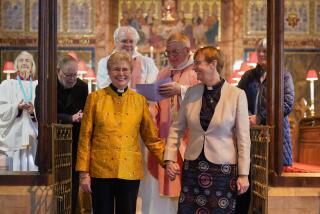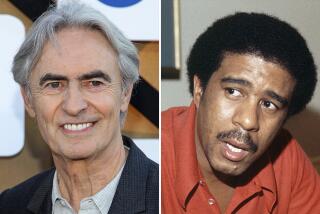Culture warriors and the Anglican Church
In its editorial following the Anglican Communion’s recent decennial Lambeth Conference, The Times makes a statement that needs a little parsing. In our culture, it is easy to adopt the “culture war” language. In fact, it is often encouraged. In this case, I’m truly wondering what The Times is communicating (intentionally or not).
The Times writes: “Sexual orientation isn’t the only issue to resonate outside the Anglican fold. Societies like those from which some conservative bishops come are coping with a Western culture that seems to mock traditional notions of faith and family, a consequence of globalization.”
First, who is mocking? Who’s pushing anyone down and kicking sand in their face? Who is stomping on the midfield logo after a game? No, there’s no mocking.
Second, what are “traditional notions of faith and family”? Aren’t traditions expressed differently by different people? For many, a tradition is to open presents on Christmas Eve; others traditionally open presents on Christmas Day. Do we get exercised over this? Of course not. Do we despise Martin Luther, who displayed nontraditional notions of faith? What about the more extreme John Calvin, whose notions of faith were a radical departure? Would the traditional notions in my church even resemble those of fundamentalists? Traditional notions of music have been abandoned by wide parts of the church -- am I to feel mocked by rock music?
And what traditional notions of family are there? The Times doesn’t name them. And why are these so-called notions the breaking point? And why are they given a higher priority than, say, love? Many of these “notions” would have a hard time sailing in many places, I imagine.
Lastly, I’m a little confused about exactly what is a consequence of globalization. Perhaps it is the part about non-Western societies “coping” with Western values. With what are their “conservative bishops” coping? From what I have heard, they are coping with mocking by their Muslim brothers and sisters for being in the “pro-gay” religious denomination. To me, this sounds as if they are coping with what we consider to be progress. They are coping with a culture and faith to which they subscribe that is heading toward inclusion, and they are afraid. Sorry, but next to the far more pressing regional issues in parts of Africa (such as, say, disease and genocide), “coping” with these things seems pretty small.
The Times also writes: “And tensions between the West and Islam underlie the complaint by African bishops that an endorsement of homosexuality by Western churches puts Christians at a disadvantage with Muslims -- and at risk of physical violence -- in areas where the two faiths compete for adherents.”
A “disadvantage”? Exclusion is a far worse disadvantage for Anglicans. Risk of violence is another thing, however. Still, I am curious if this violence is truly based on homosexuality in the United States. After all, if African bishops and local Muslims are on the same side of the dispute, how can there be disagreement, let alone fighting? Perhaps agreements by some bishops (such as Nigerian Archbishop Peter Akinola) to support violence against homosexuals and their supporters by joining with local Muslims in oppression should be given more examination in the “culture war.”
The Times’ use of language that styles African bishops and their American supporters as culture warriors victimized by liberal encroachment neither accurately describes the situation in the Anglican Communion nor benefits the healthy exchange of ideas. The so-called culture war is not a response to victimization but an excuse to exclude, deride and criminalize those who are different. Why don’t we start to discuss “traditional notions of faith and family” as describing compassionate action and loving, committed relationships? Those are truly Biblical notions.
The Rev. Drew Downs is curate of St. David’s Episcopal Church in Lansing, Mich.
More to Read
A cure for the common opinion
Get thought-provoking perspectives with our weekly newsletter.
You may occasionally receive promotional content from the Los Angeles Times.










